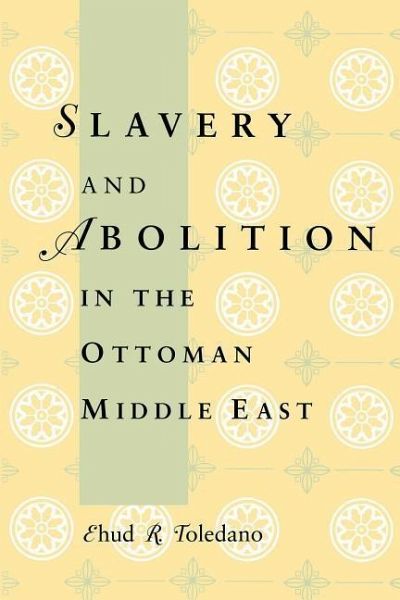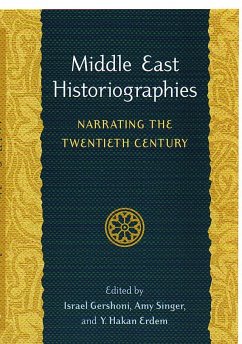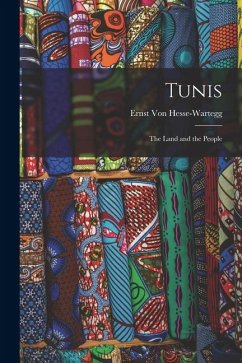
Slavery and Abolition in the Ottoman Middle East

PAYBACK Punkte
15 °P sammeln!
In the Ottoman Empire, even members of the ruling elite were technically slaves of the sultan and therefore could be ordered to surrender their labor, their property, or their lives at any moment. Nevertheless, slavery provided a means of social mobility, conferring status and political power within the military, the bureaucracy, or the domestic household, and the slave trade reinforced patronage networks. Ehud Toledano's exploration of slavery from the Ottoman viewpoint is based on extensive research in British and Turkish archives and offers rich, original, and important insights into Ottoma...
In the Ottoman Empire, even members of the ruling elite were technically slaves of the sultan and therefore could be ordered to surrender their labor, their property, or their lives at any moment. Nevertheless, slavery provided a means of social mobility, conferring status and political power within the military, the bureaucracy, or the domestic household, and the slave trade reinforced patronage networks. Ehud Toledano's exploration of slavery from the Ottoman viewpoint is based on extensive research in British and Turkish archives and offers rich, original, and important insights into Ottoman life and thought. In order to humanize the narrative, Toledano examines the situations of individuals representing the principal realms of Ottoman slavery: and female harem slaves, the sultan's military and civilian kuls, court and elite eunuchs, domestic slaves circassian agricultural slaves, slave dealers, and slave owners. Slavery and Abolition in the Ottoman Middle East makes available new and significantly revised studies on 19th-century Middle Eastern slavery and suggests general approaches to the study of slavery in the different cultures.












![The Ottoman and the Spanish Empires in the Sixteenth and Seventeenth Centuries, Tr. [From Fürsten Und Völker, Vol.1] by W.K. Kelly Cover The Ottoman and the Spanish Empires in the Sixteenth and Seventeenth Centuries, Tr. [From Fürsten Und Völker, Vol.1] by W.K. Kelly](https://bilder.buecher.de/produkte/66/66823/66823050n.jpg)
